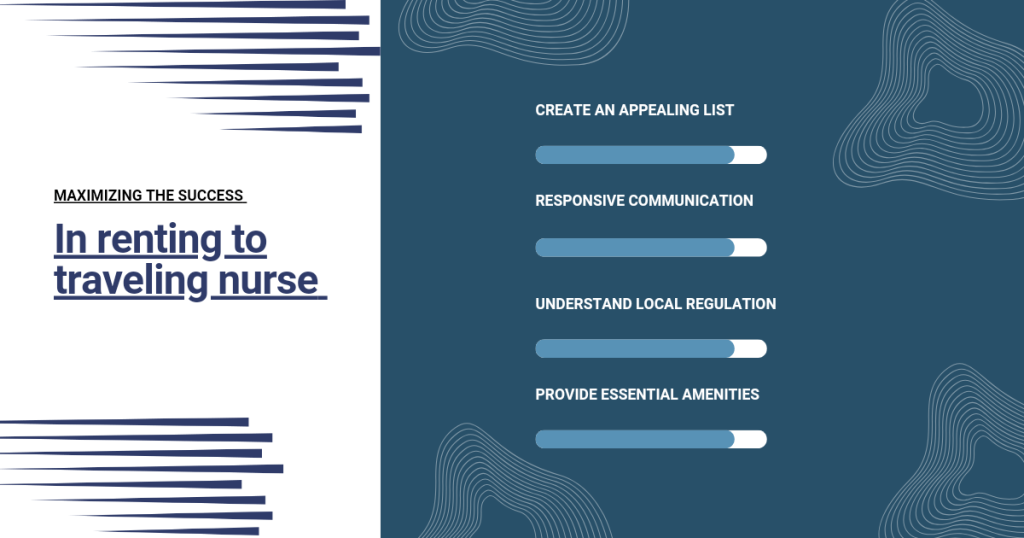Can You Become a Travel Nurse Right Out of College?
Navigating the Transition: Can You Become a Travel Nurse Right Out of College?
Discover the journey of becoming a travel nurse straight out of college. Explore opportunities, requirements, and tips for success!
Transitioning from nursing school to the professional realm is an exciting yet challenging phase for aspiring nurses.
For those with a sense of adventure and a passion for diverse experiences, the prospect of becoming a travel nurse right out of college may seem alluring.
In this comprehensive guide, we’ll explore the possibilities, considerations, and steps involved in embarking on a travel nursing career fresh out of college.
Understanding Travel Nursing for Recent Graduates

Travel nursing, a dynamic and flexible career path, involves registered nurses taking on temporary assignments in various healthcare facilities.
While it’s common for nurses to gain some clinical experience before venturing into travel nursing, beginning this journey straight out of college is a viable option for some.
Factors to Consider: Can You Start Travel Nursing as a New Grad?

1. Licensing Requirements:
- NCLEX-RN: Before considering travel nursing, recent nursing graduates must successfully pass the National Council Licensure Examination for Registered Nurses (NCLEX-RN). This exam is a prerequisite for obtaining a nursing license.
- State Licensing: Nurses need to obtain a nursing license in the state where they plan to practice. Some states may have specific requirements for new graduates, so it’s crucial to research and understand state licensing regulations.
2. Clinical Experience:
- Preferable, But Not Always Mandatory: While many travel nursing agencies prefer candidates with some clinical experience, some agencies are open to considering new graduates. Gaining experience through internships, clinical rotations, or externships during nursing school can enhance your competitiveness.
3. Willingness to Adapt:
- Adaptability is Key: Travel nursing often involves adapting quickly to new healthcare settings, protocols, and teams. New graduates who are open to learning, flexible, and thrive in dynamic environments may find success in travel nursing.
4. Specialized Training:
- Consider Specializations: Some travel nursing assignments may require specialized skills. New graduates can consider obtaining additional certifications or training in specific areas to broaden their opportunities.
5. Agency Preferences:
- Research Agencies: Not all travel nursing agencies have the same criteria for accepting new graduates. Research and reach out to agencies that specialize in placing recent graduates and understand their specific requirements.
Benefits of Starting Travel Nursing Right Out of College

1. Diverse Experiences:
- Professional Growth: Travel nursing offers new graduates the opportunity to gain diverse clinical experiences early in their careers. Exposure to different healthcare settings and patient populations can contribute to professional growth.
- Cultural Exposure: Travel nursing allows individuals to experience various cultures, healthcare practices, and lifestyles. This cultural exposure can broaden perspectives and enrich personal and professional lives.
2. Financial Advantages:
- Competitive Compensation: Travel nurses often receive competitive compensation packages, including higher pay rates, stipends for housing and meals, and other financial incentives. This can be appealing to new graduates managing student loan debt.
- Tax Benefits: Travel nurses may qualify for tax benefits, such as deductions for travel-related expenses. Understanding and maximizing these benefits can contribute to financial well-being.
3. Building a Strong Resume:
- Enhanced Resume: Travel nursing experience can be valuable to a new graduate’s resume. It showcases adaptability, versatility, and the ability to thrive in different healthcare environments.
- Networking Opportunities: Working in diverse settings allows new graduates to build a network of professionals across the country, opening doors to future career opportunities.
Challenges and Considerations
1. Limited Clinical Experience:
- Learning Curve: New graduates may experience a steeper learning curve when adapting to the fast-paced and demanding nature of travel nursing. Seeking guidance from experienced mentors and being proactive in learning is crucial.
2. Licensing Challenges:
- State-Specific Requirements: Licensing requirements vary by state, and some states may have additional requirements for new graduates. It’s essential to research and fulfill these requirements before pursuing travel nursing.
3. Personal and Emotional Preparedness:
- Embracing Change: Travel nursing often involves frequent relocations. New graduates should assess their readiness for the challenges of adapting to new environments, making new connections, and managing the logistics of travel.
Steps to Start Travel Nursing as a Recent Graduate
1. Obtain Your Nursing License:
- NCLEX-RN Success: Successfully pass the NCLEX-RN to obtain your nursing license.
- Research State Requirements: Research the specific licensing requirements of the state where you intend to practice.
2. Build a Strong Resume:
- Highlight Relevant Experiences: Emphasize relevant clinical experiences, internships, or externships on your resume.
- Include Certifications: Include any additional certifications or specialized training you have acquired if applicable.
3. Research Travel Nursing Agencies:
- Agency Criteria: Research travel nursing agencies and identify those that are open to hiring new graduates.
- Connect with Recruiters: Reach out to agency recruiters to discuss your goals, and preferences, and understand their specific requirements.
4. Be Open to Different Locations:
- Flexibility is Key: Be open to different locations and healthcare settings. Flexibility increases your chances of finding suitable assignments.
- Research Facilities: Research potential healthcare facilities to ensure they align with your career goals


